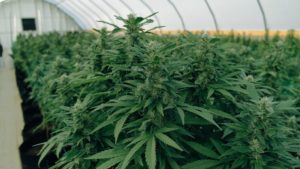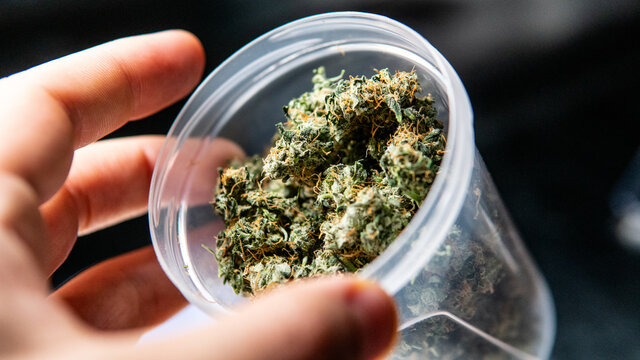The world of cannabis is vast, and as scientific research delves deeper into the intricacies of this plant, discoveries continue to emerge. One such discovery is THCa (tetrahydrocannabinolic acid), a compound found in raw cannabis that holds a myriad of potential benefits.
Understanding THCa is crucial for cannabis consumers and the industry as a whole. In this guide, we’ll explore THCa, its benefits, extraction methods, consumption techniques, and its role in the cannabis industry.
Importance of Understanding THCa in the Cannabis Industry
As more people become interested in the potential therapeutic benefits of cannabis without the psychoactive effects, the demand for non-intoxicating options like THCa is increasing. By offering THCa products, businesses can cater to this growing market segment and attract a broader range of consumers.
This could lead to the discovery of new therapeutic uses, improved extraction methods, and innovative products that harness the power of THCa.

What is THCa?
THCa is a non-psychoactive cannabinoid in raw, live cannabis plants. It is the precursor to THC (tetrahydrocannabinol), the well-known compound responsible for the psychoactive effects or “high” associated with cannabis use. THCa becomes THC through a process called decarboxylation. When cannabis is exposed to heat, it undergoes a chemical process called decarboxylation, which transforms THCa into THC, the psychoactive compound responsible for the euphoric “high” associated with cannabis use.
The process of decarboxylation removes the carboxyl group (COOH) attached to the THCa molecule and leaves behind the active THC molecule. This process is essential for unlocking the full psychoactive potential of cannabis, as raw cannabis plants predominantly contain THCa.
THCa vs THC: Understanding the Differences
Although THCa and THC share a similar molecular structure, they have distinct differences in their effects on the body. As mentioned earlier, THCa is non-psychoactive, meaning it doesn’t produce the euphoric high associated with THC. This makes THCa more appealing to those who want to experience the potential therapeutic benefits of cannabis without the intoxicating effects.
Is THCa Legal?
In the United States, the legal status of THCa depends on the source of the cannabis plant. If THCa is derived from hemp plants containing less than 0.3% Delta-9 THC, it is considered legal under federal law, thanks to the 2018 Farm Bill. However, if THCa comes from cannabis plants with a higher THC content, its legality falls under the same category as marijuana. And as we know, marijuana is still federally illegal although many states have legalized a medical or recreational program. It’s important to note that state laws can vary, so always check your local regulations.
If you plan to travel with THCa products, it’s crucial to understand the legal status of THCa in your destination country, as well as any transit country. Some jurisdictions may have strict drug policies, and traveling with THCa could lead to legal repercussions. Always research local laws and consider the risks before traveling with any cannabis-derived products.
Benefits of THCa
Research on THCa is still in its infancy, but preliminary studies suggest it may have several potential benefits.
Anti-inflammatory properties: THCa has been found to possess anti-inflammatory properties, making it a potential option for managing conditions with inflammation at their core, such as arthritis, Crohn’s disease, and multiple sclerosis.
Neuroprotective effects: Some studies suggest that THCa may have neuroprotective properties, meaning it could help protect brain cells from damage. This could have implications for the treatment of neurodegenerative diseases like Parkinson’s and Alzheimer’s.
Potential for treating nausea and appetite loss: THCa may also be effective in treating nausea and appetite loss, making it a potentially useful option for patients undergoing chemotherapy or those with HIV/AIDS.
As research on THCa continues, more potential benefits may be uncovered, expanding its therapeutic applications.
THCa Extraction and Consumption Methods
There are so many ways to consume THCa that there is truly something for everyone. Consuming raw cannabis in its natural, unheated form will provide the highest concentration of THCa. You can do this by adding raw cannabis leaves or buds to smoothies, salads, or other dishes. Another method to obtain THCa is by cold-pressing raw cannabis leaves and buds into a juice. This process preserves THCa without converting it into THC.
You can use tinctures made from raw cannabis sublingually (under the tongue) or add them to food and beverages. These tinctures will contain THCa without the psychoactive effects of THC.
For those seeking a highly concentrated form of THCa, crystalline is the way to go. You can add this purified form of THCa to foods and beverages or vaporize it at low temperatures.

How to Use THCa
Choosing the right method for your needs depends on the desired effects and personal preferences. Here are some tips for optimizing THCa consumption.
- Start with a low dose: As with any new supplement or treatment, it’s important to start with a low dose of THCa to gauge your body’s reaction. Gradually increase the dosage as needed until you reach the desired effects.
- Experiment with different methods: Try various consumption methods to determine which one works best for you. Some may prefer raw cannabis consumption, while others might find tinctures or cold-pressed juice more appealing.
- Monitor your results: Keep track of your THCa consumption and its effects on your symptoms or overall well-being. This will help you determine the most effective dosage and method for your specific needs.
Before incorporating THCa into your wellness routine, consider talking with a healthcare professional, especially if you have pre-existing medical conditions or are taking medications.
Choosing the Right Method for Your Needs
By educating yourself and experimenting with various methods of consumption, you can make informed decisions about incorporating THCa into your wellness routine. To kick-off your THCa experience, here are a few top formats to try out.
High THCa Pre-Roll
High THCa Pre-Rolls offer a convenient and user-friendly way to consume THCa. These pre-rolled joints contain raw cannabis flowers rich in THCa, allowing you to experience the compound’s benefits without the hassle of grinding, rolling, or preparing the cannabis yourself. Simply light the pre-roll and enjoy the therapeutic effects of THCa.
THCa Diamonds
THCa Diamonds are a highly concentrated form of THCa, purified through advanced extraction techniques. These crystalline structures offer a potent and versatile option for consuming THCa. You can vaporize them at low temperatures, add them to food or beverages, or even dissolve them under your tongue. Diamonds provide a powerful way to experience the benefits of THCa without the psychoactive effects of THC.
THCa Flower
THCa Flower is raw cannabis bud that has been carefully cultivated to contain high levels of THC. Therefore, flower can be used in a variety of ways, such as incorporating it into smoothies or salads, cold-pressing it into juice, or creating your tinctures. THCa Flower offers a versatile option for those looking to experience the benefits of THCa in its most natural form.
Final Thoughts on THCa
THCa is a fascinating compound with a wealth of potential benefits and applications. As research continues to unveil its therapeutic properties, it’s likely to play an increasingly important role in the cannabis industry. So, hether you’re a curious consumer or a cannabis professional, understanding THCa and its potential impact is essential. Give it a try and see how THCa works for you.
